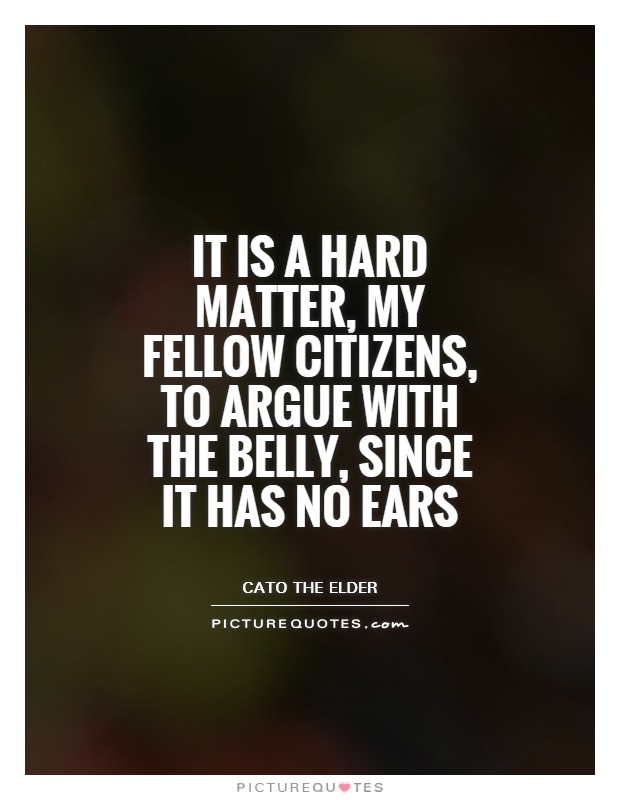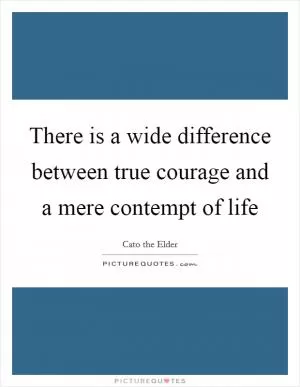It is a hard matter, my fellow citizens, to argue with the belly, since it has no ears

It is a hard matter, my fellow citizens, to argue with the belly, since it has no ears
In the context of Cato the Elder, the quote "It is a hard matter, my fellow citizens, to argue with the belly, since it has no ears" holds significant meaning. Cato the Elder, also known as Cato the Censor, was a Roman statesman and historian known for his strict moral code and frugality. He believed in the virtues of self-discipline, hard work, and simplicity, and often spoke out against excess and indulgence.The quote reflects Cato's belief in the importance of self-control and moderation, particularly when it comes to food and drink. Cato understood that the desire for pleasure and comfort, especially in the form of food, could be a powerful force that could lead people astray from their principles and values. He recognized that the belly, representing the physical desires and appetites of the body, could easily overpower reason and logic.
Cato's words serve as a reminder to his fellow citizens that it is important to exercise restraint and discipline in all aspects of life, including the consumption of food. He believed that indulging in excess and gluttony could lead to moral decay and weaken the individual's ability to make sound decisions. By acknowledging the power of the belly and its insatiable appetite, Cato urged his fellow citizens to resist the temptation to overindulge and instead focus on living a life of virtue and self-control.
Cato's own lifestyle reflected his beliefs in simplicity and moderation. He was known for his frugal habits and disdain for luxury, choosing to live a modest and disciplined life. His commitment to self-discipline and moral integrity made him a respected figure in Roman society, and his words continue to resonate with people today.












 Friendship Quotes
Friendship Quotes Love Quotes
Love Quotes Life Quotes
Life Quotes Funny Quotes
Funny Quotes Motivational Quotes
Motivational Quotes Inspirational Quotes
Inspirational Quotes